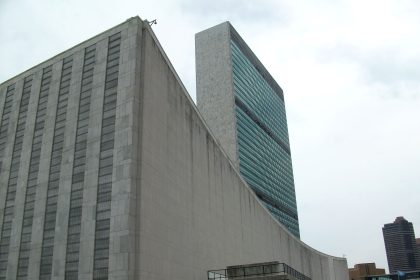Maryland Court to Decide if Pandemic Requires Insurers to Cover Businesses

ANNAPOLIS, Md. — Maryland’s high court is expected to rule soon on whether insurers for corporations whose businesses suffered because of the COVID-19 pandemic must cover the lost income.
On Friday, the Maryland Court of Appeals heard arguments from fashion company Tapestry, Inc., which says it lost $652 million in the year after the pandemic reached the United States. In the year before the pandemic, it earned more than $643 million.
Factory Mutual Insurance Co. argued that Tapestry failed to prove it suffered property damage that could initiate its insurance coverage.
Most states have sided with the insurers in similar cases but several of the lawsuits are pending.
“To cushion the impact of the coronavirus and COVID-19, Tapestry turned to its property insurer, [Factory Mutual], to whom Tapestry paid over $10 million in premiums in exchange for $2 billion in property damage and time element (also known as business interruption) coverage during the policy periods,” the Tapestry lawsuit says. “FM, however, declined to fulfill its obligations to Tapestry under the policies.”
New York-based Tapestry owns well-known fashion brands like Coach and Kate Spade.
As evidence of its losses from the pandemic, the company said in an October 2021 court filing that at least 1,676 Tapestry employees were diagnosed with COVID-19.
The illnesses proved the virus was present on its job site, which had the effect of degrading the property, the company’s attorneys argued. They compared the virus to other toxic substances, like ammonia and carbon monoxide, that make a property unsafe by transforming the air inside.
They cited previous cases where courts allowed business loss insurance coverage when the diseases that caused the losses were E. coli and Legionnaires’ disease.
They also said Tapestry’s policy with Factory Mutual covered “all risks of physical loss or damage,” not just the “direct physical loss or damage” found in most business insurance.
Factory Mutual denied Tapestry coverage in a letter about two weeks after the fashion company filed its claim.
“As a result of FM’s breaches of contract, Tapestry has suffered and continues to suffer damage in an amount to be proven at trial, but currently estimated to exceed hundreds of millions of dollars in damages,” Tapestry’s legal complaint says.
Tapestry’s choice of Maryland state courts reflects a revised strategy among businesses claiming insurance coverage for their losses during the pandemic.
The first lawsuits were filed in federal courts, where the insurers almost uniformly won against the claims.
In a January 2021 federal court ruling, the Fourth Circuit Court of Appeals in Virginia ruled for an insurer while writing, “In short, the pandemic impacts human health and human behavior, not physical structures. … But the unambiguous terms of the policy do not provide coverage for solely economic losses unaccompanied by physical property damage.”
More recently, businesses have been filing their lawsuits in state courts in hopes of winning a more sympathetic audience.
The high courts in Iowa, Massachusetts, South Carolina, Washington and Wisconsin have generally ruled for the insurance companies. They have given slightly varying interpretations of whether the presence of the virus on job sites degrades the value of the property.
The hearing last Friday before the Maryland Court of Appeals indicated the judges were leaning toward a ruling for Factory Mutual Insurance.
Judge Steven B. Gould said, “I’m having trouble understanding a concept of property damage that literally goes away if you do nothing. I’m not aware of any other type of damage to property where you can do nothing and it goes back to where it was.”
Judge Matthew J. Fader said, “I’m having trouble conceptually with understanding a concept of property damage that could be completely absolved by an effective vaccine.”
The case is Tapestry Inc. v. Factory Mutual Insurance Co. in the Maryland Court of Appeals.
Tom can be reached at [email protected] and @TomRamstack























